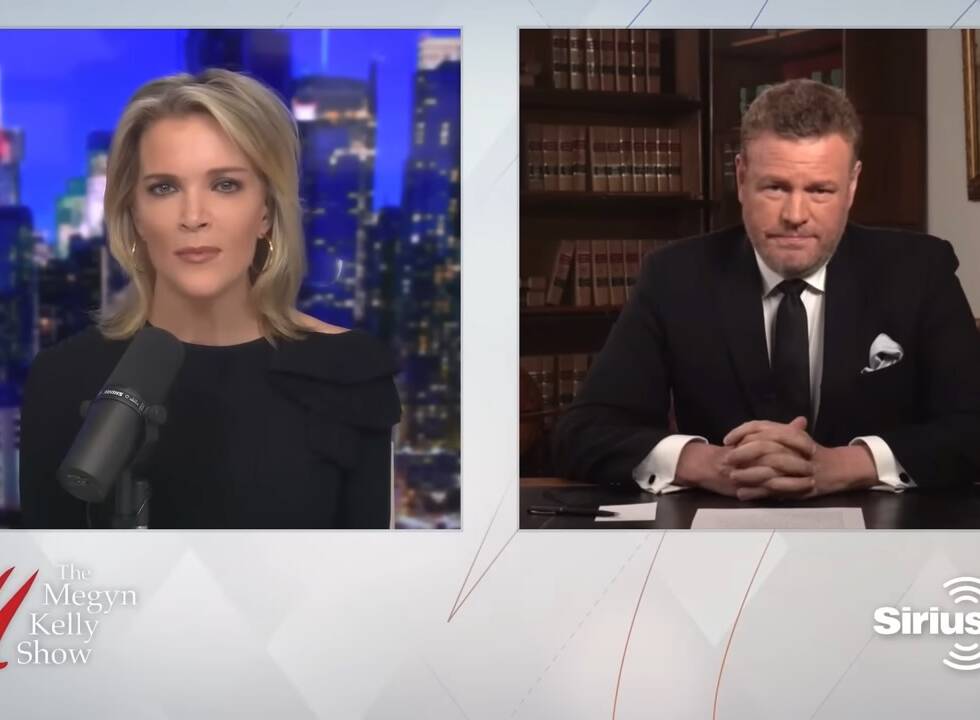Queen Elizabeth II, Great Britain’s longest-serving monarch, died on Thursday at Balmoral Castle in Scotland. She was 96 and had reigned for 70 years. Her tenure spanned 15 prime ministers, beginning with Winston Churchill in 1952. Geopolitically, she saw the fall of the British empire and the introduction of the Commonwealth. She served as head of state through the post-World War II austerity, the Cold War, and the United Kingdom entering and exiting the European Union.
On the home front, the Queen is survived by her four children, eight grandchildren, and 12 great-grandchildren. Her seven decades on the throne saw many changes to the roles and responsibilities of the Royal Family and the perception of the monarchy both in the U.K. and abroad. And yet through all of that, she remained steadfastly disciplined and keenly aware of her purpose.
This sense of duty appears all but lost in today’s era of victimhood. On Friday’s program, Megyn reflected on the Queen’s passing with GB News’ Mark Steyn, and the two compared the late monarch’s legacy to that of her granddaughter-in-law Meghan Markle.
Meghan Markle and the Culture of Victimhood
One of the reasons the world is so mourning the passing of Queen Elizabeth II is because she was the “anti-Meghan Markle,” Megyn said. In her view, Markle is representative of “a new generation that loves to whine, loves to complain, loves to invent problems, loves to take one random slight that may or may not have happened and blow it up into the entire narrative.”
Take, for instance, Markle’s new cover story for New York Magazine’s The Cut. In the feature, the Duchess of Sussex claims that the media used racial slurs when discussing her children. “She claimed in that interview with The Cut that the press are calling her children the n-word… that would have been a massive story, there would have been international backlash,” Megyn said. “So, clearly she’s on the comments sections of random posts about her online where somebody got away with offering a terrible remark – I’m giving her the benefit of the doubt – and she blew it up into her narrative about how she’s treated by the British press in an interview with New York Magazine.”
That spin “says something about Meghan Markle,” Megyn noted. In the same way, the Queen’s stoicism said something about her. “It was ‘never complain, never explain,’” she continued. “She would be the last to run to the cameras or the press and start lambasting anyone in her family – even those who deserved it or attackers of the Royal Family.”
How Queen Elizabeth II Handled Adversity
As Steyn pointed out, it’s not as though Queen Elizabeth II never dealt with adversity. It’s just that “she regarded all that as part of the job,” he said. There is perhaps no clearer example of this than the way she dealt with anti-monarchists during her reign.
Upon news of the Queen’s passing, there were reports of pubs in Northern Ireland that were celebrating the occasion. “The Queen wouldn’t have cared about that for a moment,” Steyn said – just as she was never scared off by the behavior of protesters and dissenters. He also told the story of a time someone pulled a gun on the Queen as she rode on horseback through the streets of London during a procession for the annual Trooping the Colour. “It’s not like the president in his 48-car motorcade – there’s just the Queen on a horse,” he recalled. “The next year, she was back on the horse because she regards that as part of the job.”
Another example? In New Zealand, Steyn explained that the indigenous Māori people would “greet” the Queen by “turning around, and dropping their trousers, and baring their bottoms.” She took this, too, in stride. “After about the third time it happened, the Queen just would wave her gloved hand at all those pert Māori bottoms,” he shared. “It’s de facto incorporated in New Zealand ceremonial – the Queen waving her hand at the mass ranks of Māori bottoms.”
All of these anecdotes illustrate how Queen Elizabeth II viewed her role. “The insults come with the job, the slates come with the job, the dangers and the risks come with the job,” Steyn concluded. “The idea of Megan Markle recycling the same half dozen grievances to ever-diminishing returns on Oprah or whatever shows she’s down to by now is absolutely pathetic.
You can check out Megyn’s full interview with Steyn by tuning in to episode 388 on YouTube, Apple Podcasts, or wherever you like to listen. And don’t forget that you can catch The Megyn Kelly Show live on SiriusXM’s Triumph (channel 111) weekdays from 12pm to 2pm ET.


